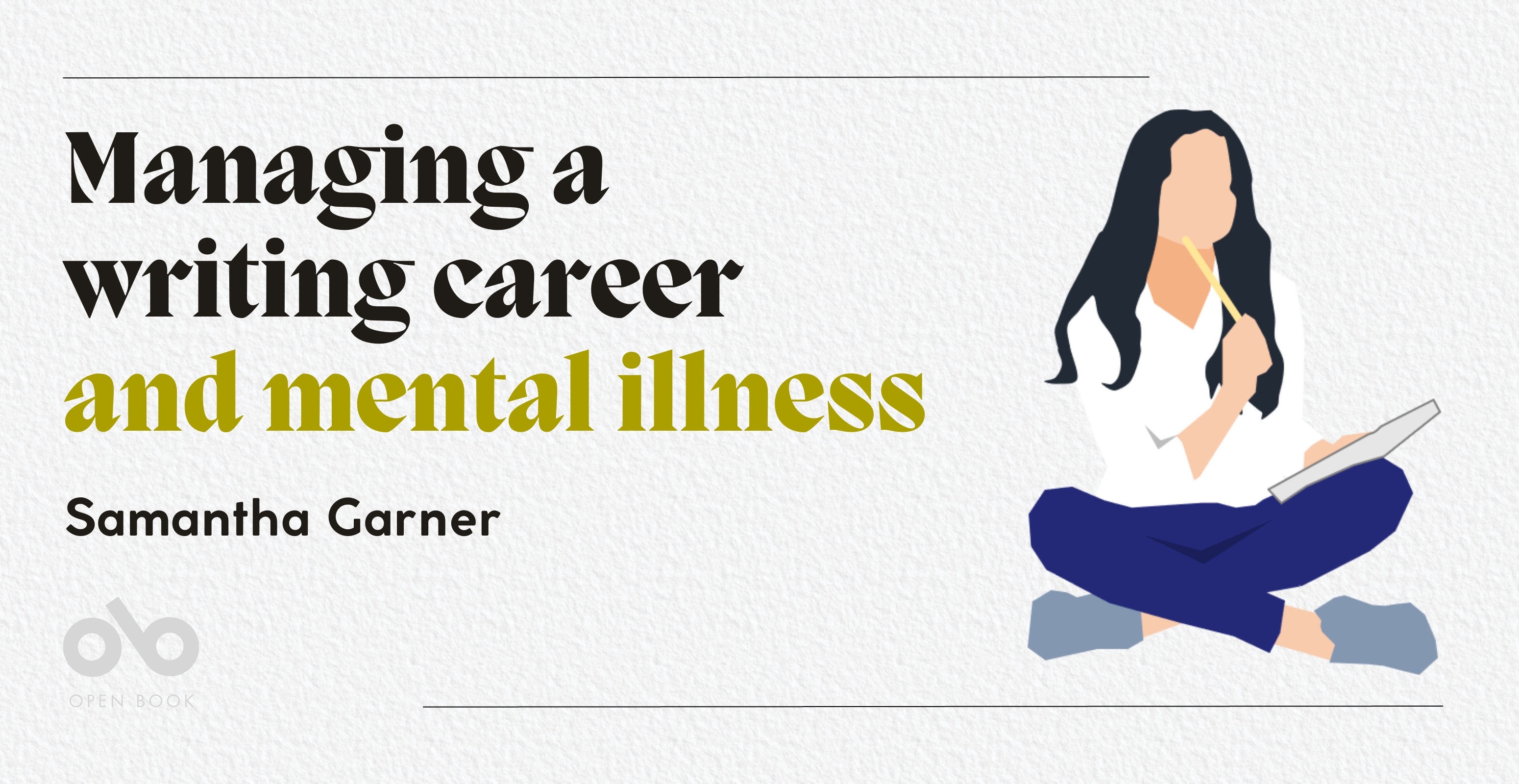Managing a Writing Career and Mental Illness
By Samantha Garner
As someone who's dealt with chronic depression and anxiety for most of my life, I know how difficult it can be to balance mental illness and writing. Sometimes, the thought of working on my latest book feels as achievable as swimming backwards up a mountain. Not ideal, to say the least, but especially not when writing is one of the biggest sources of meaning in my life. Oof.
Over the years I’ve learned a few ways to keep my writing career going while respecting the limitations of my mental illness, and I thought they might be helpful to other writers who also have mental health considerations of their own.
Just some disclaimers before I start: I’m not a medical professional. I’m not here to tell you how to “fix” yourself or imply that these tips are one-size-helps-all. Rather, I’m sharing these tips in the hope that they give you some comfort or inspiration. You’re definitely not alone, and please do reach out to someone you trust if you’re having difficulty coping.
Here are my tips for balancing a writing career and mental illness:
Work on whatever interests you:
It’s all well and good to bash out thousands of words a day, but what if you just don’t have the energy or focus? What if the only writing-related task that sounds remotely appealing is light research? Or what if you can only write 200 words?
I used to agonize over my word count and deem myself an abject failure when depression fogged my brain so much that I couldn’t do anything. As you might have guessed, that sort of negative self-talk did not help matters. Eventually I tried giving myself permission to work on something, anything, even just for 10 minutes. After a while I saw that any project-related task contributed to the whole, even if it was one sentence, half an hour of research, or brainstorming ideas over a cup of tea.
Be gentle with yourself:
As I mentioned earlier, berating myself for not having a perfect writing session when my depression flared up was not helpful. Surprising no-one, it made everything worse. Not only was I a failure for not writing, but I was also a failure for thinking I was a failure!
Every writer has days where life pulls their attention away from their work, and I would never judge them⎯so what made me so different? The answer is, of course, that depression lies to me. I started taking small steps to show myself some compassion, to be proud of myself for writing one sentence and then going back to bed (or even writing in bed, why not?). I’m a human being trying her best, and sometimes I really need that reminder.
Your CanLit News
Subscribe to Open Book’s newsletter to get local book events, literary content, writing tips, and more in your inbox
Don’t write:
Seriously. If your mental health is in the gutter and you honestly just can’t write that day⎯don’t. Do literally anything else that gives you a little bit of healthy comfort or pleasure or grounding or distraction or whatever you need to get through the day. I sometimes go days without writing⎯weeks when things are bad⎯and I used to despair, thinking it meant I was no longer a writer. Ask me how great that made me feel. But when it came back, I realized: of course, it was always there. Writing was the first thing I was good at and the only thing I’ve ever wanted to do with my life. It’s how I see the world. It’s an intrinsic part of me. A few weeks of no output honestly can’t change that about me, and you may notice the same about you. Taking care of yourself is the most important thing.
Set boundaries for yourself, with yourself:
Sometimes there’s nothing better than staying up late writing, feeling the story crackling through me seemingly from another plane of existence, creating something meaningful and having fun doing it.
But then it takes me two hours to fall asleep afterwards, I wake up four hours later with the sun, I can’t concentrate on anything all day, I’m irritable⎯and, oh yeah, tiredness makes my depression worse. For days.
It’s difficult but setting boundaries with yourself can be very helpful in maintaining your mental health while writing. For example, my main writing self-boundaries are not writing past 8pm and unfollowing writers on social media who make me feel inadequate. Identifying when useful research switches to life-avoiding research was also important. And I recently learned to make accommodations for myself if I have a writing-related event, as my social anxiety means I’ll need downtime the next day to recover.
When you have a mental illness, managing a writing career comes with its own set of complications that sometimes feel insurmountable. The things that work with your specific situation are unique to you, but I hope these tips help you see that it’s possible to maintain a writing career while dealing with complicated mental health. And because it can never be said enough⎯you’re not alone!
The views expressed by Open Book columnists are those held by the authors and do not necessarily reflect the views of Open Book.
Samantha Garner is the author of The Quiet is Loud, shortlisted for the 2022 Kobo Emerging Writer Prize. A Canadian of mixed Filipino-Finnish background, her character-driven fantasy novels explore themes of identity and belonging. When not writing, Samantha can be found daydreaming in a video game or boring a loved one with the latest historical fact she’s learned.
She can be found online at samanthagarner.ca and on Instagram and Twitter at @samanthakgarner.



